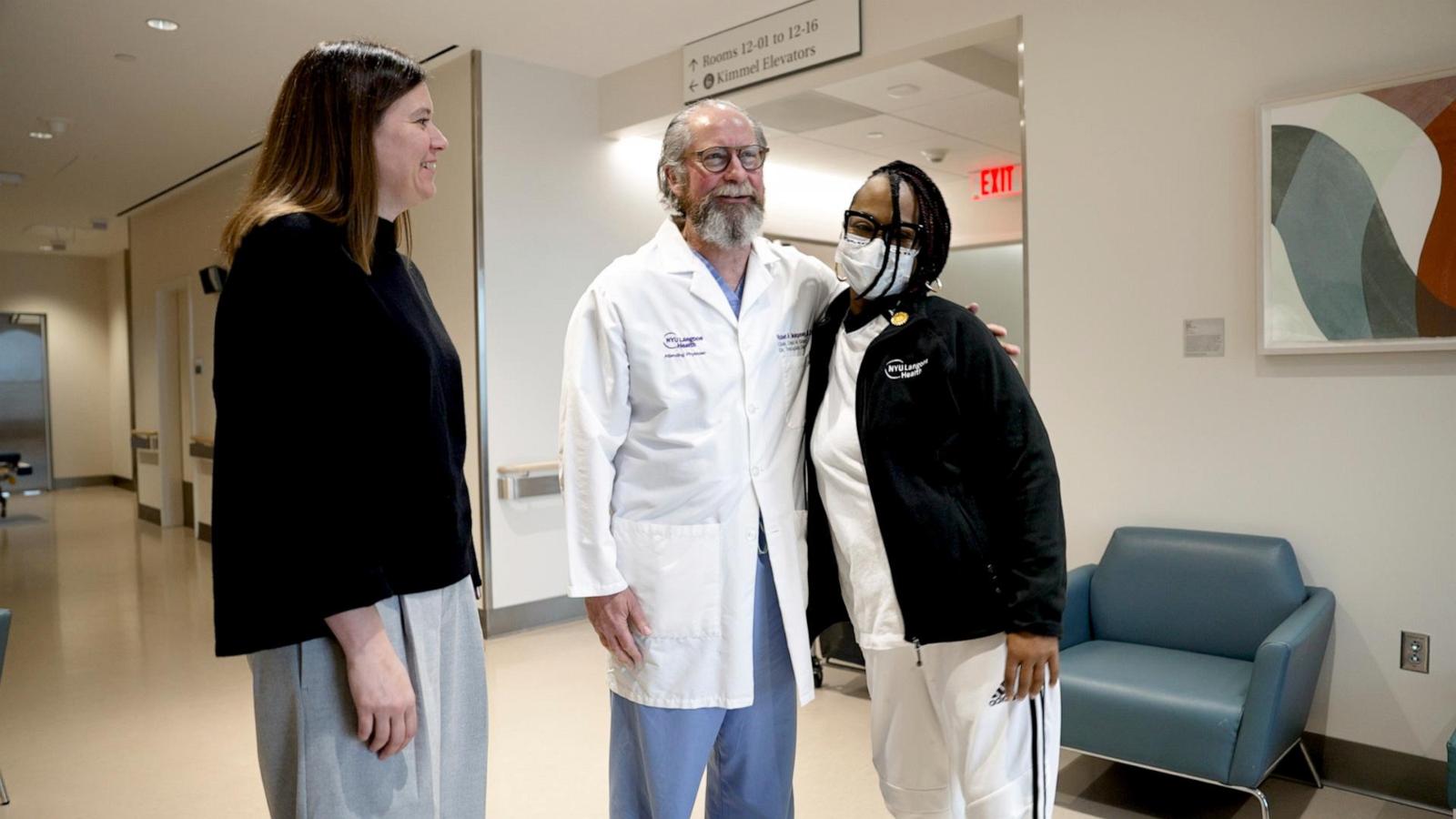Pig Kidney Transplant: A Woman's Hope and the Future of Xenotransplantation
For eight long years, Towana Looney endured the grueling routine of dialysis. But in a groundbreaking medical triumph, she became the fifth American to receive a gene-edited pig kidney transplant, potentially freeing her from this life-altering procedure. This isn't just another medical story—it's a testament to the extraordinary power of hope and the dawn of a new era in organ transplantation. Prepare to be amazed by this medical marvel, the stunning success of xenotransplantation, and the journey that's rewritten the future of organ donation.
A Breakthrough in Xenotransplantation
The recent success of Towana Looney's pig kidney transplant is a monumental step forward in xenotransplantation. This cutting-edge medical technique involves using animal organs for human transplantation, presenting a promising solution to the dire shortage of human organs for patients in need. What is truly groundbreaking here? The use of a gene-edited pig kidney which is customized to minimize rejection by the human immune system. Scientists are carefully altering the genetics of these pig kidneys to make them more compatible with humans, significantly reducing the risk of rejection and creating a possible solution to organ shortages that has doctors and patients alike looking forward to a future beyond the limits of human organ donations.
The Looney Case: A Success Story
Towana Looney's case is exceptional, highlighting remarkable progress in xenotransplantation research. Unlike previous recipients who faced complications and sadly succumbed to health issues, she's showing impressive recovery progress. Months after her transplant, she’s exceeding expectations and is paving the way towards clinical trials and a new future in organ transplantation, leading to many hoping the surgery offers new potential for those suffering from organ failure.
Hope for Thousands
The implication of Looney's successful transplant? A transformative shift in the landscape of organ transplantation! Currently, there's a staggering number of people across America awaiting life-saving organ transplants – thousands dying on those waitlists. But xenotransplantation has emerged as a powerful game-changer. Successfully implemented, gene-edited pig organs will offer a significant increase in available organs. The possibility to dramatically increase the availability of life-saving organs gives scientists a profound source of hope.
Overcoming Challenges in Xenotransplantation
Despite the undeniable success, xenotransplantation still faces significant challenges. The biggest obstacle remains rejection by the recipient's immune system and preventing disease transmission from pigs. It's worth pointing out that, as remarkable as the Looney procedure is, there are hurdles ahead in its widespread acceptance and success.
The Immune System's Fight
The immune system's reaction is critical for the survival of this breakthrough medical procedure. Even with gene-editing, the recipient's immune system could still recognize and attack the pig kidney. This is where the gene alterations prove crucial, because their primary function is to minimize immune responses.
Disease Transmission Prevention
Researchers are extremely cautious and use careful testing to reduce any risk of diseases spreading from the pig to the recipient. This includes rigorous screenings and genetic modification of pig organs to minimize any such possibility, so those waiting on transplant lists can continue to feel confident and secure.
The Future of Xenotransplantation
Looking ahead, clinical trials are set to begin, paving the way for wider applications and validation of this groundbreaking treatment. As this revolutionary treatment moves from clinical testing to common practice, we're likely to see it applied to a range of organ transplants, offering renewed hope for those previously considered ineligible.
The Clinical Trial Phase
The success of the recent experimental pig-kidney transplant gives a strong reason to believe the clinical trial phase of the research could be incredibly successful. The early successes of xenotransplantation in humans create a strong case for the upcoming clinical trials of using animal organs for transplants to move forward, generating exciting new breakthroughs.
A Wider Application
The potential extends far beyond kidney transplants! The technology could eventually become usable for a variety of organs such as hearts and livers. While some consider this to be science fiction, there's good evidence pointing to the successful integration of this technology in clinical practices across a variety of fields, such as a kidney transplant.
Take Away Points
Towana Looney's successful pig kidney transplant marks a pivotal moment for xenotransplantation. While challenges remain, the future holds immense promise for this life-saving technology, bringing hope to thousands awaiting organ transplants. The road ahead remains paved with research and cautious progression, but the possibility of readily available and easily adaptable organ transplants based on genetically engineered pig organs brings an excitement that inspires many.




